Discover the best tools for SEO topical map in 2026. Compare features, pricing, and workflows — and see why Keywordly.ai is the all-in-one solution to build topical authority faster.
Introduction
Google’s algorithms have evolved far beyond simple keyword matching. Today, topical authority is what separates average websites from true category leaders.
Instead of asking, “Which keywords should I target?” modern SEOs now ask, “Which topics should I own?”
That shift in mindset has made topical mapping a non-negotiable part of SEO strategy.
A topical map is essentially a content architecture blueprint — a visual or structured representation of all the core topics, subtopics, and entities that define your website’s authority within a niche.
For example:
- Core Topic → SEO Automation
- Subtopic 1 → AI Content Briefs
- Subtopic 2 → Topical Authority Tools
- Subtopic 3 → SERP Analysis Techniques
- Subtopic 1 → AI Content Briefs
Each subtopic becomes a content cluster, and through strategic internal linking, Google begins to recognize your site’s depth and expertise.
By creating a topical map, you can:
- ✅ Cluster related keywords into coherent topic groups
- ✅ Understand search intent and entity relationships
- ✅ Build content silos that strengthen authority
- ✅ Avoid keyword cannibalization and thin content
If your SEO strategy still relies on random keyword spreadsheets, you’re missing the structural blueprint Google rewards — a topical map that organizes, validates, and scales your entire content plan.
In this guide, we’ll explore the Top 5 Topical Mapping Tools for SEO in 2025, compare their strengths and limitations, and show why Keywordly.ai is the only all-in-one platform that takes you from map → brief → AI draft → publish in one unified workflow.
“Topical maps turn disconnected keyword lists into strategic content blueprints that guide every piece you publish — and that’s how you build authority in search, not just random pages.”
Read this Article : What Are SEO Topical Maps? A Beginner’s Guide to Building Topical Authority
What to Look for in a Topical Mapping Tool
“Topical mapping isn’t just about keywords — it’s about semantic authority and signaling comprehensive topic coverage to search engines.”
Not all tools are created equal. Before choosing, check if your platform can:
| Feature | Why It Matters |
| Semantic Clustering | Groups keywords by meaning, not just syntax. |
| SERP Validation | Reflects real Google intent, not AI guesses. |
| Workflow Integration | Connects mapping to briefs, drafts, and CMS. |
| Governance & QA | Prevents duplicate content and thin clusters. |
| Ease of Use | Enables collaboration across SEO + content. |
Most tools solve one of these; Keywordly.ai solves them all.
Comparison Table: Topical Mapping Tools at a Glance
“The teams that outrank competitors don’t just pick keywords — they cluster them into topic hierarchies that signal authority to search engines and AI assistants alike.”
| Tool | Free Plan | Paid Starting Price | Pros | Cons | Best For |
|---|---|---|---|---|---|
| Keywordly.ai | ✅ | $49/mo | Map → brief → draft → publish | Paid for full features | Agencies & scaling teams |
| SEO.ai | ❌ | $49/mo | Fast ideation, AI clusters | No maps/workflow | Solo SEOs, small teams |
| TopicalMap.ai | ✅ | $49/mo | Visual mapping, entity focus | No AI briefs, no workflow | Visual planners |
| Thruuu | ✅ | $49/mo | SERP-based clustering | Manual export, no drafting | Experienced SEOs |
| Search Atlas | ✅ | $99/mo | Enterprise analytics & maps | Complex, expensive | Enterprise SEO teams |
✅ Only Keywordly.ai checks every box — from mapping → execution → publishing.
Here’s our curated list of the best tools for topical map , from AI-driven ideators to end-to-end SEO workflow platforms.
🥇 1. Keywordly.ai — Best All-in-One Topical Mapping & SEO Workflow Tool
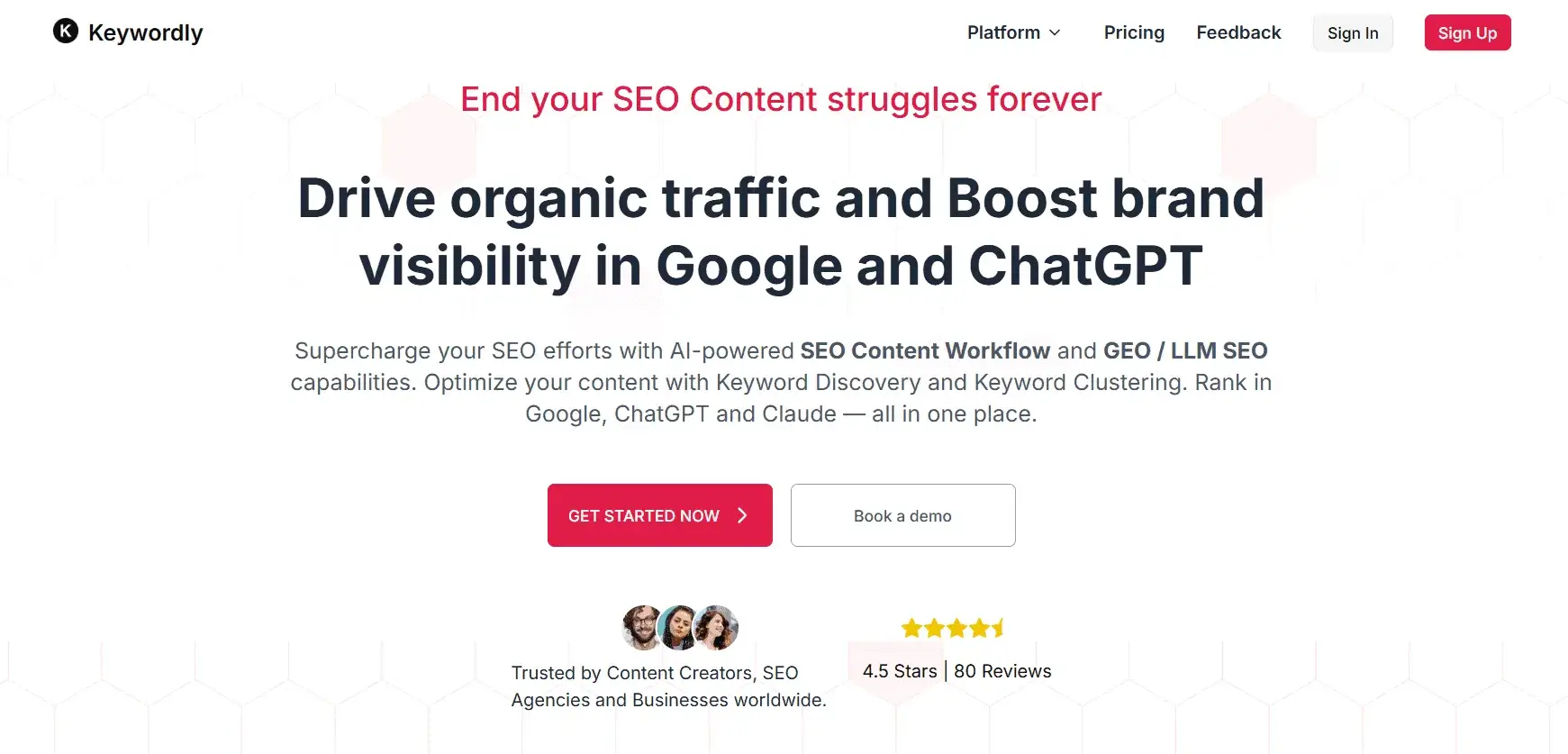
If you’re looking for a complete SEO workflow, Keywordly.ai is the standout choice.
Unlike standalone mappers, Keywordly.ai connects every stage:
- Builds SERP-validated topical maps
- Generates AI-powered content briefs
- Drafts optimized content inside briefs
- Runs QA checks for consistency
- Publishes directly to CMS (WordPress, Webflow, etc.)
Key Features
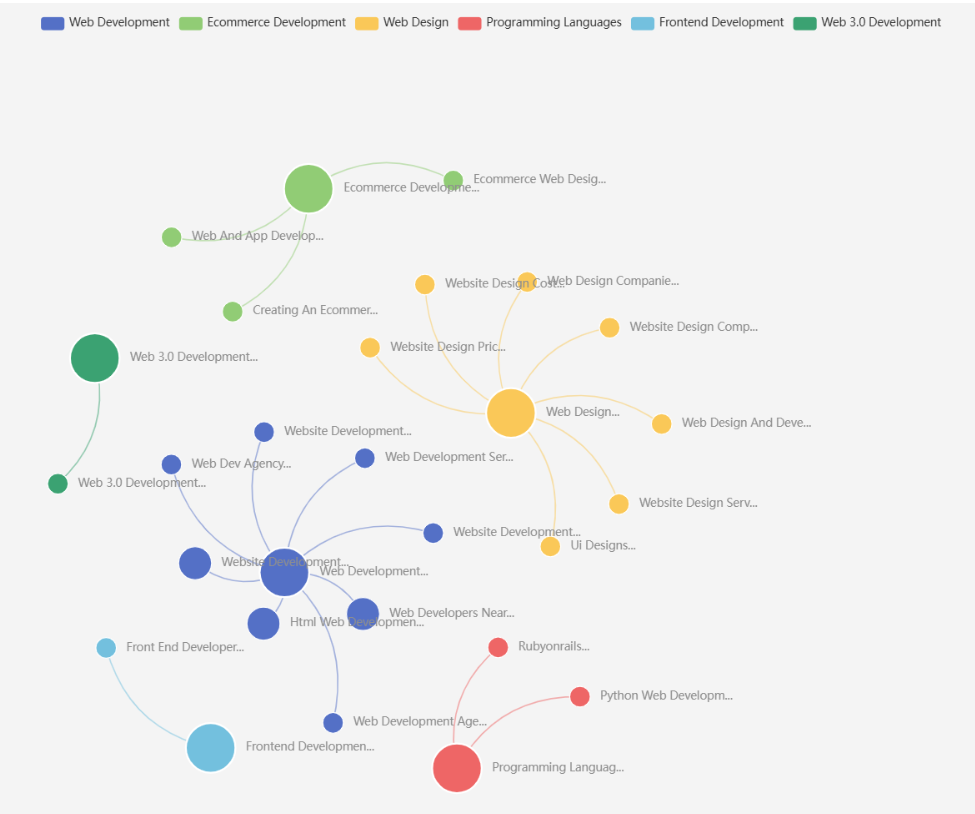
- AI Clustering with SERP Context: Understands topic intent, not just keyword overlap.
- Smart Briefs: Automatically generates outlines with search intent, headings, FAQs.
- Governance Engine: Detects cannibalization and content gaps.
- CMS Integration: Publish with one click → no more copy-paste chaos.
- Topical Cluster Formats in Keywordly.ai
- Keywordly.ai allows users to visualize clusters in two complementary formats for better clarity and actionability:
- Visual Map Format
- Table Format
- Converts clusters into a structured table for operational use.
- Columns include: Topic/Cluster Name
- Subtopics
- Target Keywords
- Priority/Status
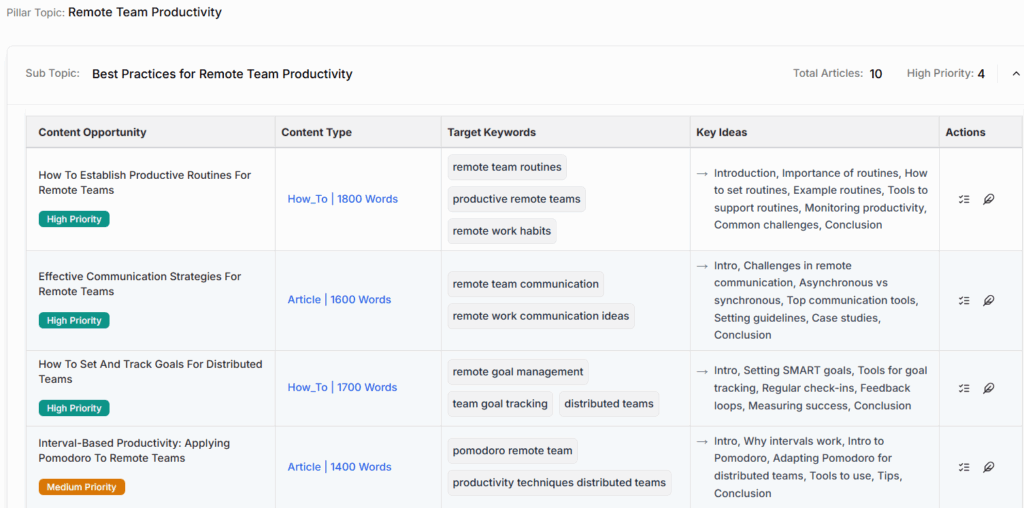
Pros
- End-to-end SEO workflow (Map → Brief → Draft → Publish)
- Built-in AI content assistant
- Reduces manual QA with automated checks
- Great for agencies & growing content teams
Cons
- Requires paid plan for full automation
- Might feel advanced for hobby bloggers
Best For: Agencies, in-house SEO teams, and content operations scaling from 10 → 100+ pages/month.
Compared to Others
While most tools visualize, Keywordly.ai operationalizes — turning topic clusters into ready-to-publish content pipelines. Explore how Keywordly.ai automates topical authority workflows here
Pricing:
- Solo: $14/month — keyword research, clustering, AI article generation, CMS publishing, and topical maps.
- Team: $39/month — includes all Solo features + brand voice setup, AI rewriting & repurposing and many more.
- Business: $79/month — includes all Team features + brand visibility, LLM content optimization, and many more.
Read this Article : How to Create a Topical Map for SEO
2. SEO.ai — AI-Powered Topic & Keyword Ideation
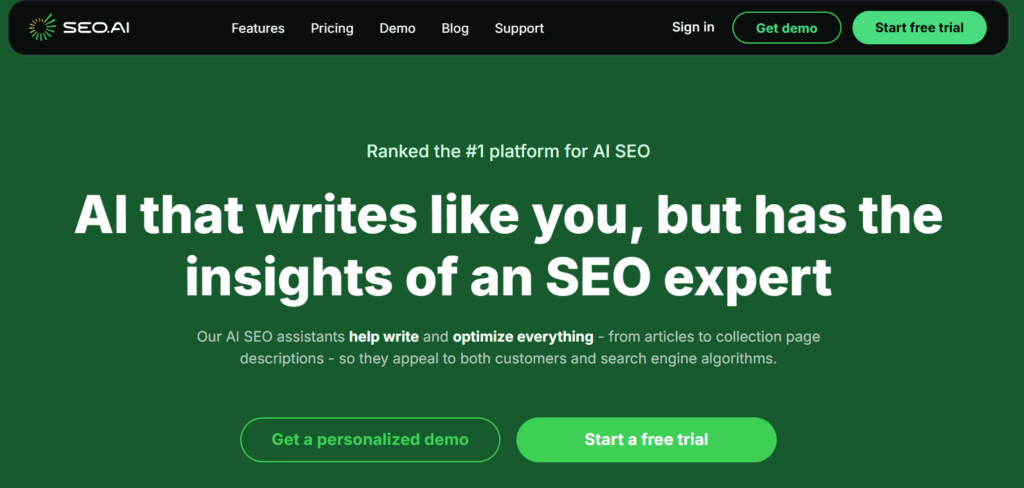
SEO.ai is a great tool for early-stage ideation and AI-assisted keyword clustering. It helps identify related topics, synonyms, and entities — ideal for brainstorming content pillars.
Pros
- Fast topic discovery
- AI-based entity clustering
- Built-in writing assistant
Cons
- No visual maps
- Limited workflow integration
Best For: Solo SEOs or small teams needing quick topic inspiration.
What SEO.ai missed:
- SEO.ai: Great for ideation.
- Keywordly.ai: Adds briefs, drafting, and publishing → true end-to-end.
Pricing:
- Starter: $49/month — basic topic clustering and AI suggestions
- Pro: $99/month — unlimited keywords, AI content generation
- Enterprise: Custom pricing
3. TopicalMap.ai — Visual Topic Mapper
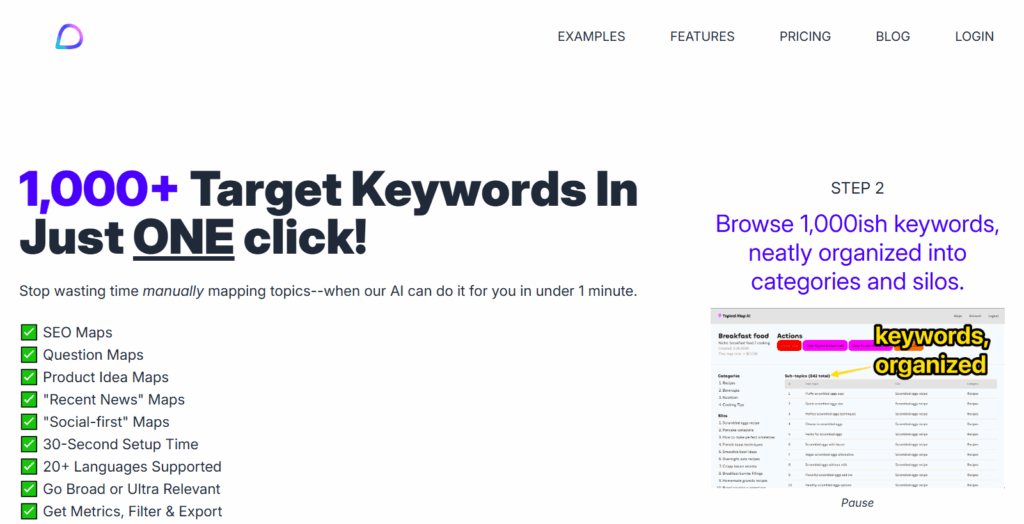
TopicalMap.ai focuses on visualizing topic relationships — great for SEOs who want a bird’s-eye view of content silos.
Pros
- Clean, intuitive interface
- Visual representation of clusters
- Helps spot topical gaps
Cons
- No AI brief generation
- No SERP validation
- Lacks workflow or publishing tools
Best For: Strategists and SEOs who like to manually plan their content silos.
What TopicalMap.ai missed:
- TopicalMap.ai: Visual planning only.
- Keywordly.ai: Visual + execution-ready maps with AI briefs + content workflow.
Pricing:
- Free Plan: Limited maps and basic clusters
- Pro Plan: $49/month — advanced entity mapping, more clusters
- Enterprise: Custom pricing
4. Thruuu — SERP-Based Intent & Topic Clustering
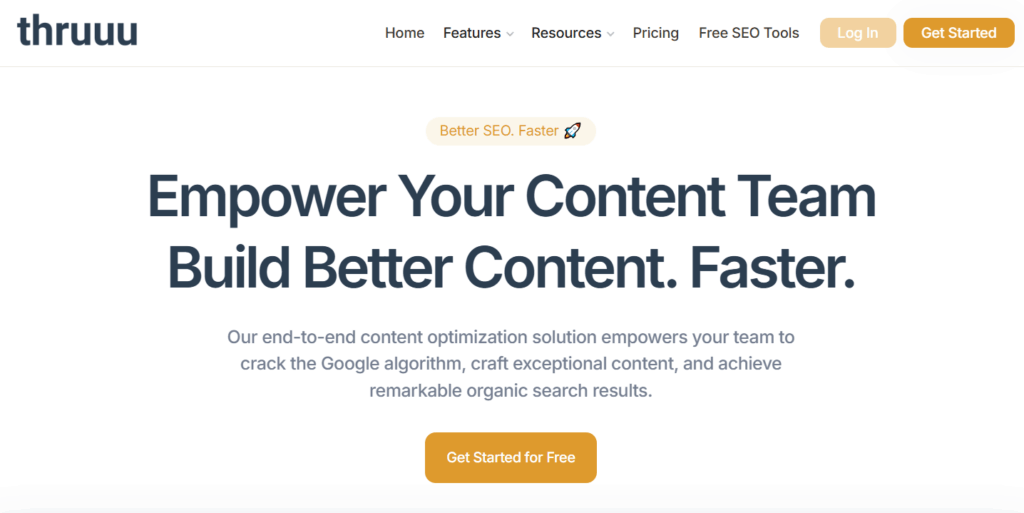
Thruuu is a powerful SERP analysis tool that reverse-engineers Google’s top results to show intent-based clustering.
Pros
- Accurate SERP-driven topic grouping
- Avoids keyword cannibalization
- Great for content audits
Cons
- Manual export and interpretation
- No brief or AI integration
Best For: Experienced SEOs validating clusters before content creation.
What Thruuu missed:
- Thruuu: Great for SERP data.
- Keywordly.ai: Uses SERP validation and automates execution (briefs, writing, publishing).
Pricing:
- Free Plan: Limited queries per month
- Pro Plan: $49/month — full SERP-based clustering, data exports
- Enterprise: Custom pricing
5. Search Atlas (by LinkGraph) — Enterprise SEO Suite
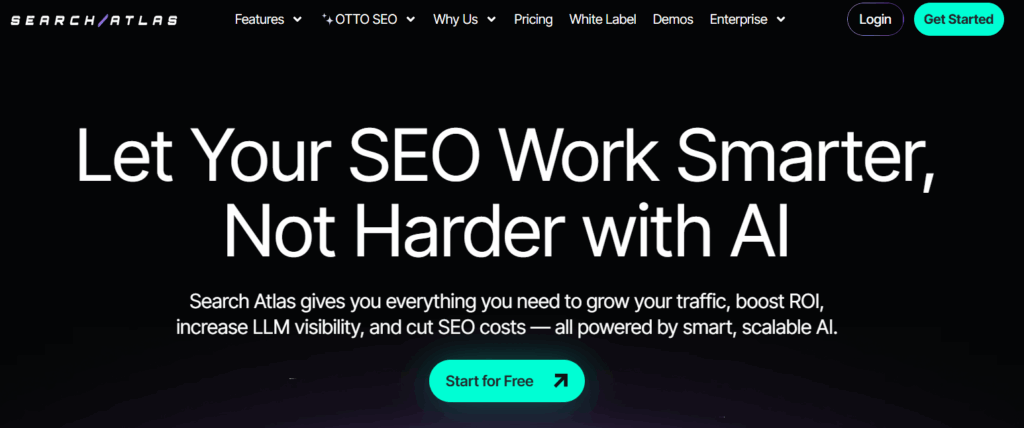
Search Atlas is a comprehensive SEO platform that includes topical map building within its suite.
Pros
- Advanced topical map builder
- Enterprise analytics & backlink tools
- Robust data insights
- Cons
- Steeper learning curve
- Expensive for small teams
- No integrated publishing workflow
Best For: Agencies and enterprise teams managing large-scale SEO campaigns.
What Search Atlas missed
- Search Atlas: Powerful but siloed.
- Keywordly.ai: Lightweight, unified, and faster to implement.
Pricing:
- Starter: $99/month — limited maps & SEO tools
- Pro: $199/month — full map builder + backlink & content insights
- Enterprise: Custom pricing
Why Keywordly.ai Is the Smart Choice
Let’s get real — most tools stop at mapping. You’re left exporting CSVs, creating briefs manually, and managing writers separately.
Keywordly.ai eliminates that fragmentation.
Here’s how:
Full SEO Content Lifecycle
- Topical Mapping: AI + SERP-backed clusters.
- Brief Generation: Search intent, headings, keywords auto-filled.
- AI Drafting: Content created inside the brief.
- Governance Engine: QA checks, duplication alerts.
- CMS Sync: Publish directly to your site.
No exporting. No spreadsheets. No chaos.
Time & ROI Benefits
“A fast-built topical map reveals gaps and opportunities in hours — not weeks — saving time and helping you publish with confidence and direction.”
- Save 40%+ production time per article.
- Reduce tool costs by consolidating mapping, writing, and publishing.
- Increase SERP alignment with real-time validation.
- Improve team collaboration under one platform.
How Keywordly.ai Replace 5 Tools at once:
| Function | Typical Tool | Replaced by Keywordly.ai |
| Keyword Research | SEO.ai | ✅ |
| SERP Analysis | Thruuu | ✅ |
| Topic Clustering | TopicalMap.ai | ✅ |
| Brief Creation | MarketMuse / Clearscope | ✅ |
| CMS Publishing | Manual | ✅ |
🚀 From research to publish — Keywordly.ai powers the entire SEO workflow.
📘 See how Keywordly.ai compares to top alternatives:
“Manual spreadsheets can’t compete with tools that generate SEO topical maps automatically — structured clusters and subtopics reveal content gaps you’d never spot by eyeballing keyword lists.”
Conclusion: From Map to Authority — The Future of SEO Is Connected
Building topical authority isn’t about finding keywords — it’s about owning topics.
The right tool turns strategy into action.
Most tools help you plan. Only one helps you execute.
✅ Keywordly.ai brings your entire SEO content workflow under one roof:
- Map topics
- Generate briefs
- Draft optimized content
- Validate SERP intent
- Publish directly
“When you map content holistically — covering main topics, subtopics, and intent — Google sees your site as an authority, and rankings follow.”
Ready to scale your SEO content faster and smarter?
FAQs
1. What is a topical map in SEO?
A topical map organizes related topics and entities, helping you build topical authority and improve SEO rankings.
2. Which tool offers full workflow integration?
Only Keywordly.ai connects mapping, briefing, AI drafting, QA, and CMS publishing.
3. Do topical maps improve SEO rankings?
Yes. They help Google understand your expertise and site architecture, improving topical authority.
4. Can I automate topical mapping with AI?
Yes — Keywordly.ai’s AI + SERP-backed mapping ensures accuracy and context.
